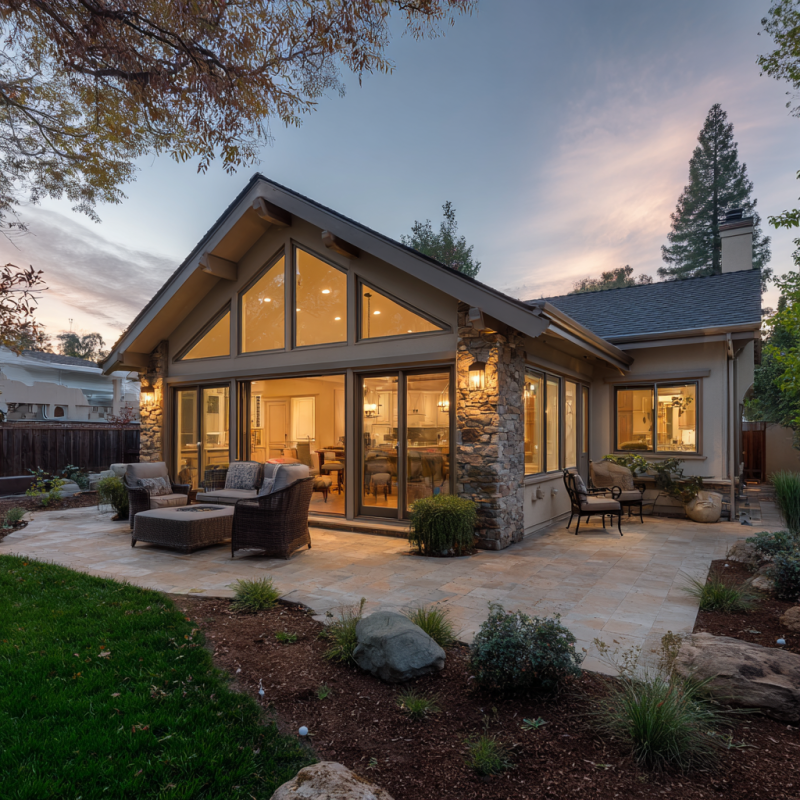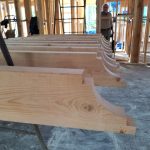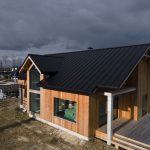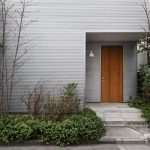
How to Get an ADU Permit in Pleasant Hill
Understanding how to get an ADU permit in Pleasant Hill
You’ve probably heard that building an accessory dwelling unit (ADU) in Pleasant Hill can be a fantastic way to add living space, boost property value, or even create rental income. Yet navigating how to get an ADU permit in Pleasant Hill might feel a bit intimidating at first. The good news is that with some preparation, the right contacts, and an organized plan, you can simplify the process. This guide aims to walk you through the key steps, from checking zoning rules to scheduling final inspections, so you can feel confident about transforming your property into a more flexible living environment.
Along the way, you’ll discover which documents you need in hand, how to work with city officials, and where professional help can save you time. Whether you’re planning a small conversion of an existing garage or envisioning a standalone structure in your backyard, you’ll find that Pleasant Hill’s permitting system is designed to help you build safely and responsibly. Read on for actionable tips, a friendly overview of local rules, and simple ways to avoid all-too-common pitfalls.
How to get an ADU permit in Pleasant Hill
Securing a permit might seem like the hardest part of adding an ADU, but breaking it into smaller steps can make the task manageable. This section outlines the core requirements you should tackle before and during your permit application.
Check local zoning requirements
Your first step is to confirm that your property meets Pleasant Hill’s zoning guidelines for ADUs. Many neighborhoods allow an additional unit if you follow certain size, setback, and height restrictions. Because specific rules can differ across the city, reach out to the local planning department for details. You may need:
- Proof that you own the property or have permission from the owner
- A site plan showing your proposed ADU size and location
- Information on any existing buildings, utilities, or easements
Sometimes, properties in Pleasant Hill fall under neighborhood associations with added regulations. Double-check these guidelines, since ignoring them could delay or jeopardize your ADU project. If you want to learn more about potential ADU designs, you can exploreadu pleasant hillfor additional insights.
Gather essential documents
Once you’ve verified that your site is eligible, start collecting the paperwork you’ll need for the permit application. At a minimum, you’ll generally have to provide:
- A set of architectural drawings showing floorplans and measurements
- An engineering plan if you’re adding structural elements
- Utility hook-up information, including water, sewer, or electric lines
- Any special reports (like geological or environmental) if required
Accuracy matters. Missing details not only slow your progress but can also increase costs if you have to revise and resubmit your application. Pleasant Hill officials appreciate complete packages, so taking time to double-check everything can speed approval.
Submit your ADU application
Most cities, including Pleasant Hill, have an established online or in-person process for permit submissions. If you prefer face-to-face interaction, the local permitting office can guide you through the forms. Alternatively, you can often download applications from the municipal website, fill them in at home, and submit them digitally. Whichever method you choose, be prepared to:
- Pay the required permit fees up front
- Provide contact info for the person overseeing construction
- Include a project timeline or schedule, especially if major structural changes are involved
After you send in your materials, the city will typically review your plans. Some minor corrections might be requested, so keeping lines of communication open is crucial. Respond promptly to ensure you won’t lose your spot in the queue.
Coordinate site visits and inspections
Once your application is approved and building begins, you’ll need scheduled site inspections to confirm that each stage of construction meets local codes. Expect key visits for the foundation, framing, and final sign-off near project completion. Pleasant Hill inspectorsaim to be thorough, not punitive, so view these visits as your chance to confirm everything is on the right track.
- Be present for each inspection if possible, to address immediate questions
- Make any recommended corrections quickly
- Keep all records and documents together in case you need to show proof of compliance
Timely communication with inspectors helps you avoid missed deadlines. If you have special circumstances (like a custom design), let your inspector know early on to prevent last-minute hiccups.
Tips for a smoother ADU project
Adding a second living unit to your property is a substantial undertaking, and diving into the permit process is only one part of your journey. Below are a few practical suggestions to make your ADU buildfeel less overwhelming and more rewarding.
Plan a realistic budget
ADU costs can vary widely, influenced by factors like square footage, materials, and utility requirements. To prevent unexpected financial strain:
- Gather multiple contractor estimates
- Factor in permit fees and financing costs
- Set aside a contingency fund (commonly 10–15% of your total budget)
If you’re curious about other home projects you can tackle alongside your ADU construction, browsingpleasant hill constructionmight give you extra ideas on how to maximize efficiency for your entire property.
Work with expert contractors
Professional guidance can significantly reduce headaches during an ADU build. Skilled contractors keep your project on schedule, help interpret municipal codes, and handle unforeseen complications. In Pleasant Hill, local experts such as Mazzamuto Construction have more than 60 years of experience serving homeowners’ construction needs, including home additions and remodels.
When contractors have a track record of working with city offices, they’ll often know how to fast-track your permit approvals. This kind of insight can shave weeks,sometimes months, off the overall timeline and keep cost overruns in check.
Stay in touch with officials
Once you’ve submitted your application, communication with the local planning department doesn’t end. You may need to update officials about design tweaks, coordinate site inspections, or address unexpected changes during construction. Always:
- Respond to phone calls or emails quickly
- Keep a dedicated folder (digital or paper) for permits, designs, and receipts
- Let your contractor or project lead know who to contact for city questions
When in doubt, don’t hesitate to ask Pleasant Hill’s building department for clarification. Clear communication avoids wasted time and ensures you’re following city guidelines.
How to get an ADU permit in Pleasant Hill
Getting your permit for an ADU in Pleasant Hillmay seem daunting, but the journey becomes much simpler when you break it down. Start by learning the local zoning requirements, gather the right documents, and submit your application as soon as you have a solid plan in place. Remember, city officials generally want to see homeowners succeed, and they’re there to help you navigate any roadblocks.
A thoughtful approach—plus professional support from a trusted contractor—can transform your backyard or attached space into a hassle-free ADU. Between budgeting realistically, scheduling inspections, and responding quickly to any adjustments the city requests, you’ll build a new living area that meets codes and enhances your property.
Ready to Get Your ADU Permit in Pleasant Hill?
Start your project today with confidence. Reach out to a trusted contractor like Mazzamuto Constructionto simplify the permitting process and bring your ADU vision to life.
Frequently Asked Questions
1. What ADU Types Are Allowed in Pleasant Hill?
Pleasant Hill permitsvarious ADU types, including detached units, attached units, interior conversions, and Junior ADUs (JADUs). Each type has specific requirements concerning size, utilities, and design. Detached units are standalone structures, while attached units share at least one wall with the primary residence. Interior conversions repurpose existing spaces like basements or garages, and JADUs are compact units within the main dwelling. For detailed guidelines, consult the Pleasant Hill Planning Division.
2. When Were Pleasant Hill’s ADU Regulations Updated?
Pleasant Hill’s ADU regulations were updated on April 15, 2019, through Ordinance No. 2019-. This amendment aligned local codes with state laws, including Assembly Bill 494 and Senate Bill 229, which became effective on January 1, 2018. The updates aimed to simplify the permitting process and encourage ADU development. For the full ordinance, refer to the Pleasant Hill Municipal Code.
3. How long does it take to secure a permit?
Permit approval times vary. Straightforward applications might move quickly, but if you need zoning variances or have complex designs, expect additional review. Budget a few weeks to a few months for the entire process.
4. Can I convert my garage into an ADU in Pleasant Hill?
Yes, garage conversions are popular if your property meets zoning requirements. You’ll still need a permit, plus any necessary structural upgrades to comply with current building codes. You can also look intoin law unit pleasant hillfor more information about converting existing spaces.
5. Are there special design rules I should know?
Pleasant Hill typically restricts ADU height, location, and square footage. You may also need to match exterior finishes to your main house. Always confirm details with the building department or a local contractor.
Key takeaways
- Pleasant Hill’s zoning rules are your starting point—always confirm your property’s eligibility before drawing up plans.
- Complete and accurate paperwork speeds up approvals, so gather your architectural drawings, engineering plans, and utility details in advance.
- Working with an experienced contractor (especially one familiar with Pleasant Hill) can simplify both the permit application and the build itself.
- Timely communication with city officials matters, from initial application to final inspection.
- A well-managed ADU project not only adds space but also raises your home’s value and can provide steady rental income.




